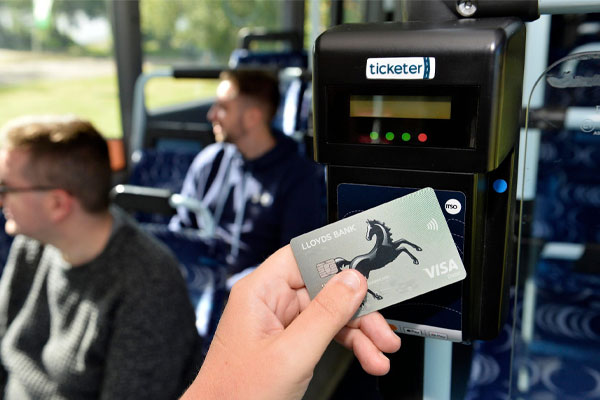Résumé writing workshops
Find Your First Job

Find Your First Job
You have many resources you can use to get help with your job search in Canada, including:
Immigrant-serving organizations who offer:
-
-
Job search training sessions
-
Other services to help you find work
Job Bank, which offers free occupational and career information about working in Canada, such as:
-
Jobs
-
Wags
-
Main duties
-
Employment trends
-
Educational requirements
Service Canada, which has important information about searching and applying for jo Your province's or territory's website for newcomers
Search and apply for jobs
Search for jobs
There are many ways to look for jobs, such as:
-
Research companies where you want to work by:
- Check their website for jobs they post
- Contact employers directly to ask if they are hiring
-
Go to job fairs in your city or town, where you can meet employers and discuss jobs
-
Browse job search websites and newspapers classified sections to see who is hiring
- Job Bank has up to 2,000 new jobs posted every day
- Jobs.gc.ca has job postings for federal public service
-
Use an employment agency that searches for jobs for you
- Call or visit a Service Canada Centre near you for lists of government employment services and training help
-
Ask family and friends if they know about open jobs
- Many jobs aren't advertised
- You'll only learn about some jobs by speaking to people
Other Resources:
-
Job Bank's employment for newcomers to Canada
-
Canada's top 100 employers
-
The Welcome to Canada guide
Apply For Jobs:
Once you find a job you're interested in, you'll usually need to apply by sending your:
-
Cover letter, which is a short description of what makes you right for the job
-
Résumé, which is:
- Also known as a “curriculum vitae” or a C.V.
- A list of your qualifications and work experience
The resources listed in the section Get important information about working in Canada can help you:
-
Find information on writing a résumé and cover letter
-
Prepare for an interview
After you apply
Based on your résumé and cover letter, the employer will decide whether to invite you for a job interview. A job interview:
-
Gives the employer a chance to:
- Meet you
- Ask questions to see if you're right for the job
-
Helps you to:
- Learn more about the job
- Decide if you want to work for that organization
It's common for people to send many résumés and cover letters to different places before being invited for a job interview.
You will get a formal job offer if the employer wants to hire you.
Network
It is easier to find a job if you have a set network of contacts. Networking can help you search for jobs in Canada's hidden job market. It's also a good way to tell many people that you're looking for work.
Work as a volunteer to build your resume
Volunteering means you perform a service willingly and without pay. Working as a volunteer can help you:
-
Get Canadian work experience
-
Practice your English or French
-
Build your network of contacts
-
Meet Canadians and make friends
-
Find someone who will be a reference for you
-
Show potential employers that you're willing to work hard
To find out how volunteering in Canada can help you find a job:
-
Search the Internet for “volunteer” and the name of the city
-
Contact an immigrant-serving organization
-
visit the Volunteer Canada website
Look for bridging programs related to your job
Bridging programs help internationally trained professionals and tradespeople who want to work in their field in Canada. They can help you get a licence or certification and integrate into the Canadian workplace.
Bridging programs offer different services, which include:
-
Courses
-
Education and skills assessments
-
Practical or workplace experience
-
Exam prep for licences or certificates
-
Language training for professions or trades
-
Action and learning plans to help you identify training you may need
Generally, language and job search services are free. However, there may be a fee for some programs. Usually, classroom training or work experience is part of the program.
To find out about programs in your area, contact:
-
The professional association or regulatory body for your profession
-
A local immigrant-serving organization
Consider alternative jobs
Knowing more about jobs related to your profession can give you more options for working in Canada.
Consider working in an alternative job. This way you can continue to learn about your profession or industry in Canada while you get your licence to work in a regulated occupation or trade.
Apply to the Federal Internship for Newcomers Program
The Federal Internship for Newcomers (FIN) Program provides eligible permanent residents and new Canadians with valuable temporary Canadian work experience and training.
Look for a mentor
Many Canadian professionals and business people give free advice and coaching to newcomers settling in Canada. You can find someone to mentor you through organizations like:
-
Immigrant Services Association of Nova Scotia (ISANS)
-
Calgary Region Immigrant Employment Council (CRIEC)
-
Toronto Region Immigrant Employment Council (TRIEC)
-
Edmonton Region Immigrant Employment Council (ERIEC)
-
Ottawa Community Immigrant Services Organization (OCISO)
Start your own business
If you're thinking of starting your own business in Canada, you'll need a detailed business plan. To learn more about starting a business in Canada, contact:
-
An immigrant-serving organization
- BizPal
- Invest in Canada
- Business Development Bank of Canada
- Ottawa Community Immigrant Services Organization (OCISO)
Find out about business immigration programs.
Workplace standards in Canada
In Canada, federal and provincial laws protect workers and employers by setting:
-
Hours of work
-
Minimum wage levels
-
Health and safety standards
-
Parental leave and annual paid vacations
Human rights laws protect employees from being treated unfairly because of their:
-
Age
-
Race
-
Gender
-
Religion
-
Disability
-
Sexual orientation
For more information:
-
Workplace standards
-
Federal Labour Standards
-
Workplace Health and Safety
-
Government of Canada's Labour Program
-
Labour Mobility
Your rights as an employee
You should learn about provincial and federal labour laws before you begin work in Canada.
You have the right to join a labour union in Canada. You often have to join a union whether you choose it or not. Union fees will be taken from your salary.
You may ask for advice or help if you feel that your employer or union has treated you unfairly. Contact an officer of the ministry in charge of labour in the province or territory where you work.
You can also visit a Service Canada Centre to talk to a federal government labour affairs officer.
Federal and provincial contacts responsible for labour are:
-
Alberta
-
British Columbia
-
Manitoba
-
New Brunswick
-
Newfoundland and Labrador
-
Northwest Territories
-
Nova Scotia
-
Nunavut
-
Ontario
-
Prince Edward Island
-
Quebec (in French only)
-
Saskatchewan
-
Yukon










